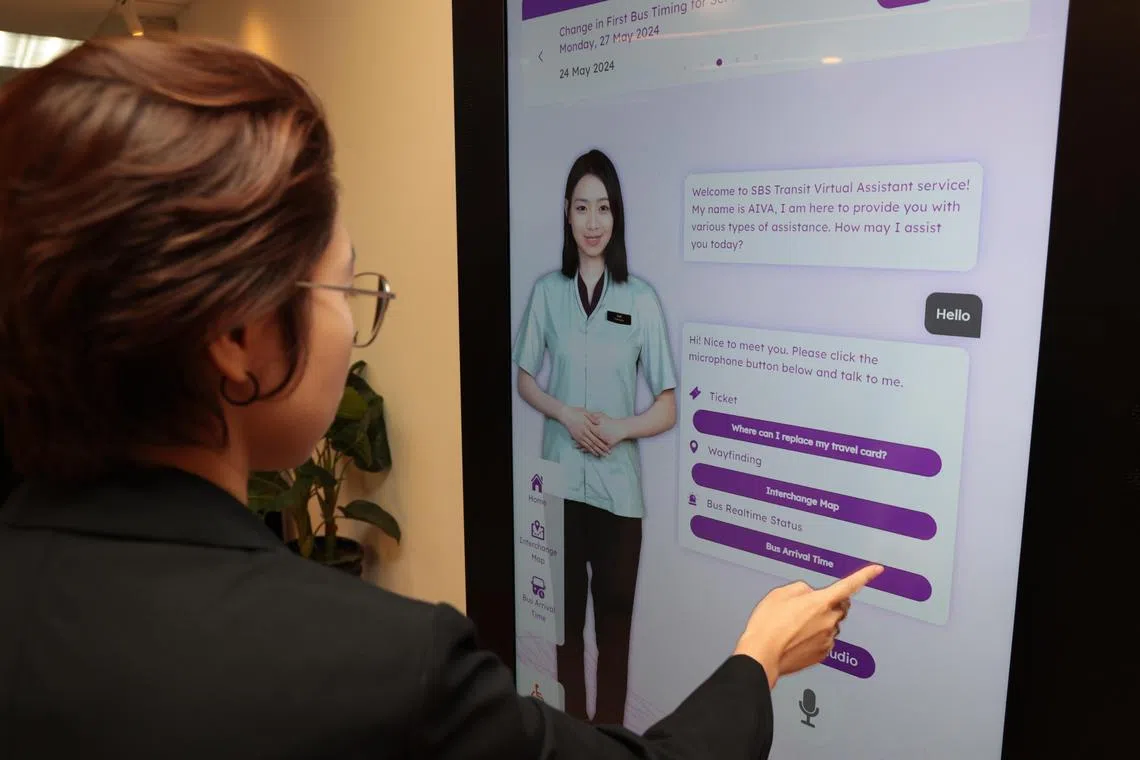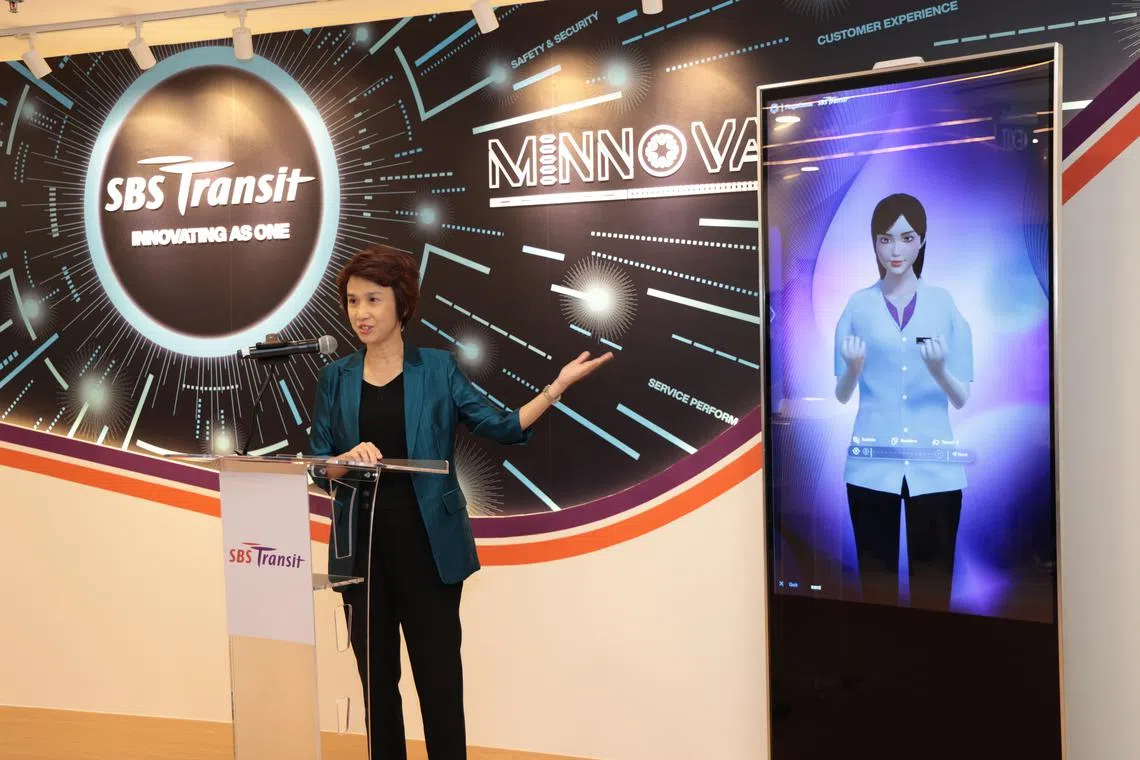SBS Transit launches mobility innovation centre and signs six MOUs for future collaborations
Sign up now: Get ST's newsletters delivered to your inbox

A digital concierge called Aiva will help passengers at Ang Mo Kio Bus Interchange with travel and wayfinding queries from June .
PHOTO: LIANHE ZAOBAO
SINGAPORE – From June, commuters at Ang Mo Kio Bus Interchange can get help with travel queries and wayfinding from a smiling face powered by artificial intelligence (AI).
Known as Artificial Intelligence Virtual Assistant (Aiva), this digital concierge is an electronic kiosk that commuters can chat with to get travel-related assistance.
Aiva was one of nine projects showcased at the launch of the new SBS Transit (SBST) Mobility Innovation Centre on May 31.
The centre is a space where small and medium-sized enterprises (SMEs), start-ups, industry experts, academics, government agencies and other stakeholders can gather to tackle challenges and co-create solutions for the public transport industry, said SBST.
Jointly established by SBST and Enterprise Singapore in November 2023, the centre is housed in the public transport operator’s headquarters in Braddell Road.
SBST’s group chief executive officer Jeffrey Sim said it aims to leverage technology to deliver “smarter, greener, and more inclusive public transport experiences” for its commuters.
On the centre’s aim of promoting innovation through collaboration, he said: “We’re trying to pull the different partners of the ecosystem so that together we can brainstorm and innovate as one.”
Another project exhibited at the centre was the Sign Language Virtual Assistant (Silvia), a virtual avatar that translates spoken or written words into sign language to assist commuters who have hearing loss.
Passengers can say or type their queries, and Silvia will provide answers in both text and sign language.
It was developed by FingerDance, a National University of Singapore start-up, and will be trialled at Chinatown MRT station on the North East Line from July, SBST said.
At the launch of the Mobility Innovation Centre, SBST signed six memorandums of understanding (MOUs) with partners to sustain and promote further collaborations. Five of these partners had their projects showcased at the event.
One of the agreements, signed with StarHub, is to develop a mobile application called the Rail Incident Management System.
Commuters can get updates during train service delays or disruptions from the app, which will also help them navigate MRT station exits and suggest alternative travel options based on the user’s location.
The app is expected to be released for the public to download in the third quarter of 2024, said SBST.
Senior Minister of State for Trade and Industry Low Yen Ling, who attended the launch, said the centre will provide SMEs and start-ups with opportunities to develop their ideas, test the feasibility and scalability of their innovations, and potentially commercialise them.

Senior Minister of State for Trade and Industry Low Yen Ling at the launch of the new SBS Transit (SBST) Mobility Innovation Centre on May 31.
PHOTO: LIANHE ZAOBAO
The centre will also help them access resources to transform their ideas into proof of concept or proof of value, which is critical for fund raising, she added.
These companies can also trial their ideas at SBST’s vehicle depots, such as selected bus interchanges or MRT stations, she said. If successful, these solutions can potentially be deployed across SBST’s bus and rail network, which sees over three million passenger trips a day.
Moreover, the centre will also serve as a valuable platform to source ideas and expertise from parts of the mobility ecosystem beyond start-ups, SMEs and industry experts, Ms Low said.
Students from institutes of higher learning can participate in design thinking workshops organised by SBST and its partners and be mentored, she said.
For instance, Nanyang Technological University electrical and electronic engineering student Kevin Tan, 24, developed a toilet monitoring system – one of the projects displayed at the centre – under this mentorship arrangement.
The centre, said Ms Low, is a “small but very significant step in Singapore’s efforts to transform our enterprises and industry through the use of AI”.
Editor’s note: An earlier version of this story said the Artificial Intelligence Virtual Assistant would be available from June 1, and the Sign Language Virtual Assistant from July 1. SBS Transit has since clarified that the projects may only be ready later in those months.



